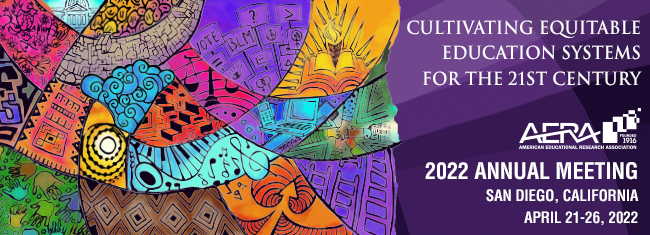NYKids at the 2022 AERA Conference Take Two: Reporting on NYKids Research-Practice Partnerships
By Kristen Wilcox
This week, NYKids shares its work with Fort Plain Junior-Senior High School to address pandemic-related disruptions via its research-practice partnership at the American Educational Research Association’s Annual Conference in San Diego, CA.
Meeting 21st Century Problems with Research-Practice Partnerships and Improvement Science
As described in a previous blog, the AERA’s Meeting Theme this year calls for educators and researchers to focus their attention on “Cultivating Equitable Education Systems for the 21st Century”.

To meet this challenge, mutually-beneficial relationships between researchers and practicing professionals are needed. Research-practice partnerships (RPPs) are fit for this purpose.
What are RPPs and how do they work?
While RPPs have been defined and configured in a variety of ways, what most share in common is a commitment to the generation and use of research to guide practice and policy and with a priority placed on multi-way mutual learning among and across partner organizations.
In the AERA paper, we discuss how NYKids functions as an RPP and how it uses improvement science as a foundation for the work via an innovation called COMPASS. Improvement science provides guidance for the RPP as COMPASS team members use several of its principles to shape how they design and implement their improvement initiatives.
A Rural Research-Practice Partnership’s Adaptations during the COVID-19 Pandemic
The NYKids paper entitled “A Rural Research-Practice Partnership’s Adaptations during the COVID-19 Pandemic” is invited for a roundtable discussion on Monday April 25th by the Improvement Science Special Interest Group. The paper and presentation outlines how improvement science principles were used to support Fort Plain Jr.Sr. High School’s planning and improvement efforts as they tackled pandemic-related disruptions.
One key improvement science principle is being “problem-focused and user-centered”. To this end, and in collaboration with the specialist Nancy Andress from the Capital Area School Development Association (CASDA), NYKids conducted a number of focus groups with youth, parents, and school staff. This information was used to craft a plan to keep educators, kids, and families engaged with each other and mitigate the many stressors of the pandemic.

Several advantages of using a RPP and improvement science will be highlighted including:
- The RPP provided tools (surveys), strategies (theory of improvement mapping) and a support structure (co-facilitated meeting times) during this particularly disruptive time to help the Jr.Sr. High School team navigate challenges posed by the pandemic.
- The RPP worked with the COMPASS team to bring in diverse perspectives and knowledge bases including the necessary attention to social-emotional and motivational aspects of children’s, educators’, and school leaders’ work and drew from the RPPs’ ongoing research and connections with other positive outlier schools in their network to support improvements and innovations
To read more about this work, see the entire article in the Journal of Cases in Educational Leadership.
Stay tuned for live updates on the conference from our Twitter, Instagram, and Facebook pages.
As always, we encourage you to reach out to us if you have interest in partnering with us in using COMPASS and welcome your questions or comments at nykids@albany.edu.
